DAY 19: BUSINESS/FINANCE PT3 – PASSING THE BATON – BUSINESS MODELS OF THE FUTURE
The cat is out of the bag. Or, as people say, in 2021, it’s on. Today there is a steady stream of African Americans running through the open door. It’s called momentum. Despite the ongoing efforts of a few indifferent people who refuse to recognize the futile and self-destructive nature of racist indoctrination, Black entrepreneurs create and maintain successful businesses by the groves.
In every arena, from individual LLCs to S-Corporations and impactful Non-profits, Black business minds are stretching out across a limitless horizon. Sports figures, wall street traders, commercial and residential developers, and consulting gurus worldwide have changed the landscape of American business forever. Today we take this opportunity to celebrate the vibrant and robust Black business enterprises of the latter half of the 20th and the beginning of the 21st centuries. Congratulations, #LetTheTruthBeTold. Indeed, We’ve come a long way, baby. But Curtis Mayfield said it best, “We’ve got to Keep on pushing.”
We have chosen to celebrate a select entrepreneurs of the 20th and 21st century for their determination to change the perception of Black peoples contributions and thus change the landscape and future of our country. Today we honor their genius. We must not let their efforts be forgotten or let others bask in the credit of their achievements. Today we change the narrative. #LET THE TRUTH BE TOLD.
“Black Entrepreneurs of recent years”
THE LATTER IS GREATER THAN THE FORMER
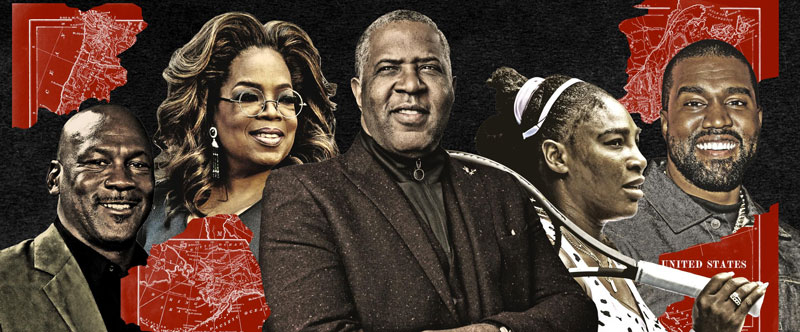
Black In Business: Celebrating The Legacy Of Black Entrepreneurship
We give a special thanks to the writers below who provided the research for the following article and subsequent list of Black entrepreneurs. Enjoy the perspective and overview of Black business success in America. #LetTheTruthBeTold.
Ruth UmohFormer StaffDiversity, Equity & InclusionI write about diversity and inclusion in and out of the workplace.Brianne GarrettForbes StaffLeadershipI’m a Forbes reporter and the editorial lead for For(bes) The Culture.
Ruth UmohFormer StaffDiversity, Equity & InclusionI write about diversity and inclusion in and out of the workplace.Brianne GarrettForbes StaffLeadershipI’m a Forbes reporter and the editorial lead for For(bes) The Culture.
CELEBRATING THE LEGACY OF BLACK BUSINESS IN RECENT YEARS
African-Americans have played a profound role in shaping the U.S. business landscape. Technological innovations like the traffic light, automatic elevator doors and even caller ID all sprung from the minds of creative black luminaries.
To honor their business achievements this Black History Month, Forbes spoke to a number of founders, investors, activists, celebrities and experts on the black diaspora. What emerged from these conversation was a rich, complex portrait of black entrepreneurship, one that highlights the black community’s tremendous creativity, as well as a resilience that was born, in part, out of hardship and necessity.
NICK CANNON AND TYLER PERRY

Nick Cannon 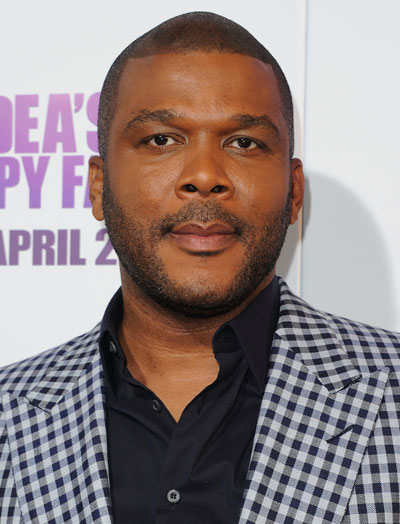
Tyler Perry
On an overcast November morning in Washington, D.C., Nick Cannon was busy, as one would expect of the multihyphenate who jockeys every morning on the radio, hosts two hit competition series and a podcast, is producing and directing two movies, and tours with a stand-up show. But he wasn’t thinking about his next interview or camera angles. Instead, as his red eye from Los Angeles landed, finals were on his mind, specifically the one he had at 5 p.m. for a public health and society class at Howard University, where he enrolled as a full-time student in 2016.
“I felt like there was this emptiness that was revealed to me when I was watching my children go through their learning process and their schooling,” he says.
Criminology and administration of justice may seem like an odd choice of major for someone who’s spent his whole career in the entertainment industry, but the spirit of Howard—walking the same hallways as Stokely Carmichael and Toni Morrison—reignited his interest in activism.
The mastermind behind 17 feature films, 20 stage plays, seven television shows, a New York Times bestselling book, Tyler has built an empire that has attracted audiences and built communities, from the Tyler Perry Studios home base in Atlanta, Georgia, throughout the world.
Celebrated “among the pa“I want to own a network. I want to own a network where you can turn it on with your family all day long and get positive reinforcement.”
TYLER PERRY
Celebrated “among the pantheon of today’s greatest cinematic innovators,” Tyler’s unique blend of spiritual hope and down-home humor continues to shape his inspiring life story, connecting with fans across the globe and always leaving space to dream.
Tyler’s legacy is the modern epitome of the American dream. Born and raised in New Orleans, his childhood was marked by poverty and a household scarred by abuse. From a young age, Tyler learned to write down his daily thoughts and experiences in a series of soul-searching letters to himself – advice he gleaned from Oprah Winfrey that ultimately set his career in motion. Characterized by strength, faith, and determination during a turbulent adolescence, these letters provided Tyler with the inspiration to delve into writing his first play, I Know I’ve Been Changed in 1992. Saving every last dollar, Tyler staged the play for what he hoped would be a packed audience, but the seats remained empty. Never would he have imagined that six years later, that same play would sell out a local run, forcing the production to move to the acclaimed Fox Theatre in Atlanta, or that in 2015, his original play, Madea on the Run, would be sold out in theaters nationwide.
“Black Captains of Industry”
20 SUCCESSFUL BLACK OWNED BUSINESSES
February is Black History Month in the U.S. and Canada, so let’s celebrate by looking at some examples of successful black-owned businesses.
This list of black-owned businesses will showcase the contributions of the black community in the business world, and the stories of the black entrepreneurs featured here may also give you some inspiration to start a business of your own.
In this roundup, we’ll look at successful companies and their owners and founders from around the world, from large, historic companies to fast-growing small businesses run by young black entrepreneurs.
“BLACK ECONOMIST OF TODAY – THE MOVERS AND SHAKERS”
19 BLACK ECONOMIST RECENTLY CELEBRATED IN 2020
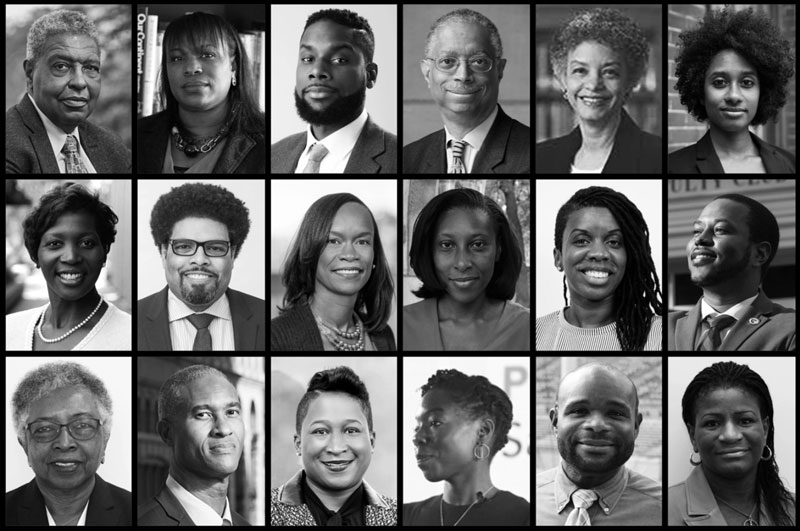
Click on link below to see names and areas of expertise.
As the world grapples with uprooting systemic racism—a conversation catapulted into collective consciousness by the death of George Floyd—it is imperative that Black economists become household names. Their work will move us through the current moment to enable a long-lasting future that upends the oppression in the Black community that subsequently harms the economic system at large.
Economics—a discipline whose core focus is exploring who gets what, where, when, and why—is of great interest to Black people, who too often find themselves on the wrong side of America’s divides in wealth and income. But they’ve faced barriers in matriculating into the profession, as Lisa Cook and Anna Gifty Opoku-Agyeman noted in their recent New York Times article, “It Was a Mistake for Me to Choose This Field.” The most recent data, from 2017, show that only 3.2% of doctoral degrees in economics are awarded to Black people each year. More than 52% of Black economists experience racism and/or discrimination, according to a 2019 report by the American Economic Association, and less than half of 1% of all top economics papers across a 30-year period explicitly address race/ethnicity.
READ FULL STORY AND VIEW FULL LIST
PITTSBURGH PA LOCAL SON, KEITH B. KEY, RETURNS HOME AS PROMINENT NATIONAL DEVELOPER
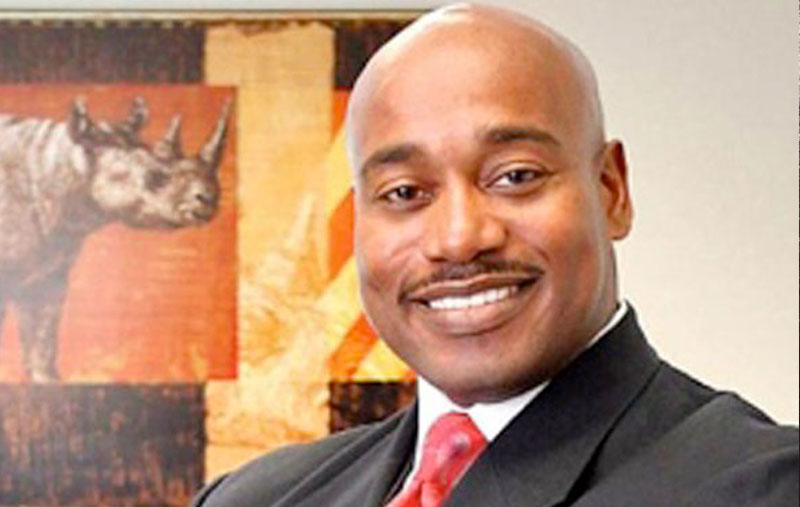
Bus built for the Greenfield School District by the Patterson Company.
Courtesy of the Historical Society of Greenfield, Ohio, www.greenfieldhistoricalsociety.org.
As CEO of Keith B. Key Enterprises, and Omni Management Group, Keith brings a host of banking disciplines and entrepreneurial skills to the operations and financial management of both corporations. Keith has been involved with over $1 billion dollars of real estate development inclusive of residential, commercial and religious-oriented projects.
A native of Pittsburgh, PA, Keith received his B.S. in Economics from The Ohio State University and is a former OSU football player. Following graduation, he entered a career in banking with The Huntington National Bank. During his tenure at the bank, Keith became one of the founding fathers of The Huntington’s nationally recognized Community Centered Banking Program. Keith’s banking career provided him with experiences in the areas of Trust, Investments, Commercial Real Estate Lending, Small Business Lending, Mortgage Banking, and more. Later, he embarked upon a career in bank consulting with P.T. & Associates where he managed seven sites, aiding The Huntington National Bank’s affiliates in the implementation of the Community Centered Banking Program and community development projects.
Along with managing seven sites, Keith worked directly with over 150 churches and faith-based institutions. After a successful career in banking and bank consulting, Keith, along with partner Adam Troy, founded Omni Management Group (OMG). OMG, in addition to working with banks and private corporations, engaged in real estate development. OMG, in only a few years, became one of America’s largest African American real estate development firms.
TOP 100 BLACK BUSINESSES OF 2019
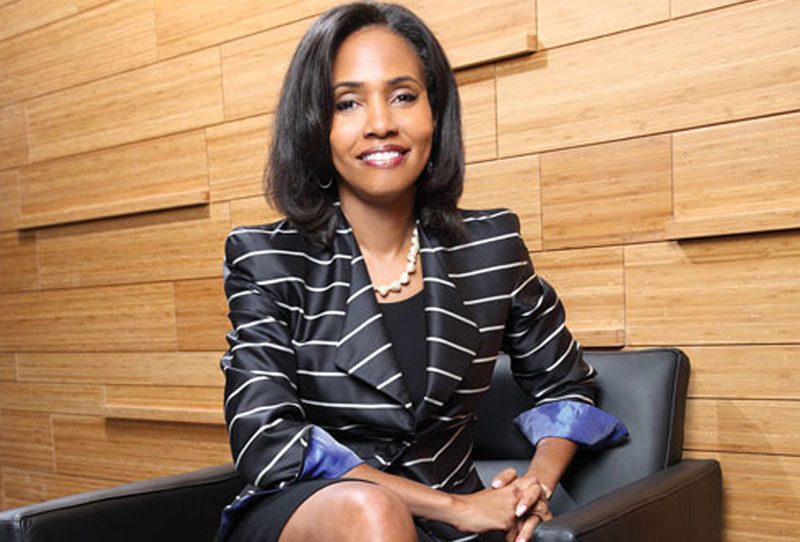
Led by Suzanne Shank, multiple strategic moves are taking place at Siebert Cisneros Shank & Co., one of the largest black-owned investment banks in the country. Shank’s leadership is positioning the firm as an even more powerful player in the nation’s investment banking world.
As the company’s CEO and chairwoman, Shank has refitted SCS over the past decade. With dual headquarters in New York and Oakland, California, SCS is the top-ranked women-owned and minority-owned Wall Street firm along with the No. 1 minority and women-owned business enterprise senior-managing underwriter of municipal new issuance. The company is also on this year’s “BE 100s” list of America’s largest black-owned businesses.
Merrick also worked as a shoe shine boy in a barbershop. When he was not shining shoes he watched and learned the trade of barbering. In 1880, his friend John Wright asked Merrick to join him in relocating in Durham, North Carolina to start a new barbershop business. After six months Merrick bought shares in the barbershop and became its co-owner. In 1892 Wright sold his shares to Merrick making him sole proprietor. Eventually Merrick owned eight barbershops in Durham. Responding to the prevailing racial segregation patterns, Merrick owned shops that catered exclusively to black and white customers.

BLACK ENTERPRISE is proud to announce the rollout of both our 2019 BE 100s list, which ranks the nation’s largest black-owned businesses, along with a new BE 100s website. The user-friendly site includes interactive maps that show where each black-owned company is located throughout the U.S.
From technology and manufacturing to food services and media, these companies represent the revenue and employment leaders of black business as well as its greatest innovators. Top 100 companies have also demonstrated economic impact by producing more than $25 billion in revenues and employed more than 70,000 workers.
Top Black 100 companies have also demonstrated economic impact by producing more than $25 billion in revenues and employed more than 70,000 workers.
BLACK ENTERPRISE
Content provided courtesy of History.com, Britannica.com and Wikipedia.com, Biographies.com, Blackpast.com, ncpedia.com, notablebiographies.com, business.tutsplus.com, tylerperry.com, kbkenterprises.com, and blackenterprise.com. All Rights Reserved.



